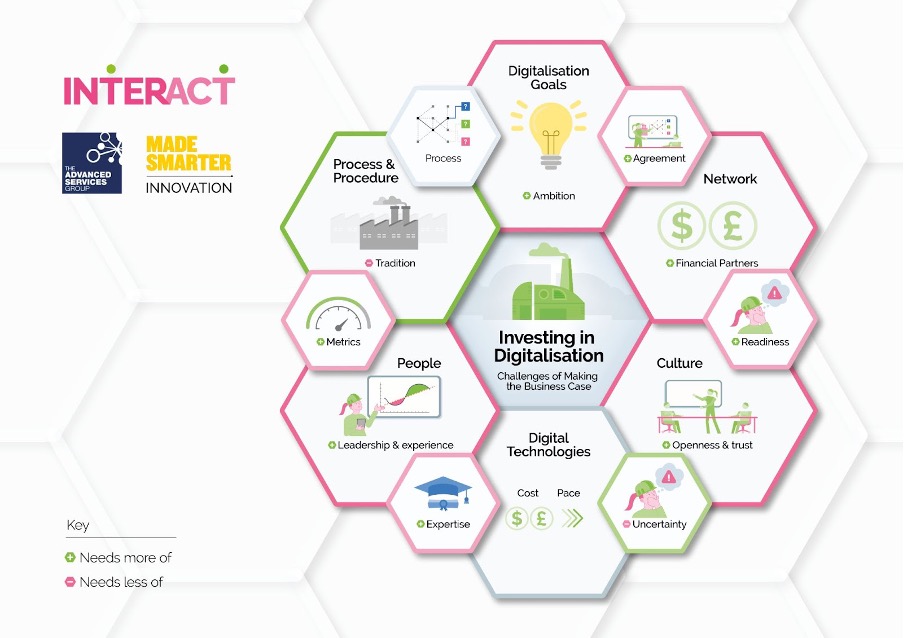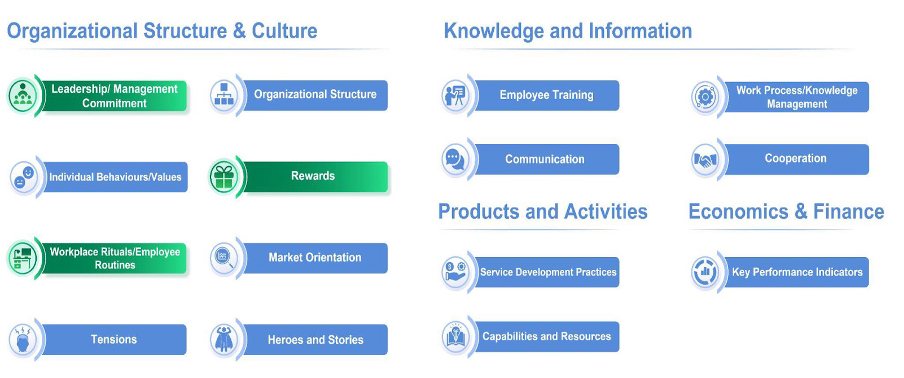‘Servitisation’ is the process of business transformation from selling products to integrated services. It is a growing trend and topic of interest for academic research. One of the leading platforms to discuss this concept is the annual Spring Servitisation Conference, organised by the Advanced Services Group and Aston Business School.
This year’s conference was held in Helsinki, drawing leading researchers, practitioners and doctoral students from around the world to focus on the role of servitisation and outcome-based business models in addressing significant societal challenges (i.e. ‘Grand Challenges’). Keynote speakers included senior business developer Dimitris Karamitsos from BASE, who emphasised the importance of collaboration between research and practice in promoting and developing as-a-service solutions around the world, and highlighted the importance of multi-stakeholder initiatives developed by BASE, such as the Servitisation for Energy Transition (SET) Alliance, Cooling-as-a-Service (CaaS) Initiative (funded by the Clean Cooling Collaborative) and Efficiency-as-a-Service (EaaS) project (an EU H2020 initiative). As part of its ongoing activities, the SET Alliance aims to foster dialogue and knowledge sharing between research and practice as a way of driving meaningful discussions on the topic of servitisation for clean and energy-efficient solutions to accelerate the energy transition.
In this article, we highlight three pieces of relevant research presented at this year’s conference. These explore: (1) the barriers to investment in digital transformation (2) the interdependencies between internationalisation and servitisation, and (3) the cultural barriers and enablers of servitisation. Firstly, the integration of digital technologies into various aspects of business operations is facilitating data-driven decision making and enhancing customer experiences of services. Digital tools have a profound effect on the efficiency, effectiveness, standardisation and customisation of service solutions and research can help to better understand the barriers to investing in digital transformation. Secondly, internationalisation and servitisation represent complex transformations which require deeper understanding to be carried out effectively. The process of internationalisation is important to consider for companies delivering solutions in diverse markets. Lastly, culture plays a crucial role in driving business transformation and research can help practitioners both develop and explore effective approaches to cultural change for servitisation.

Digitalisation
Digitalisation for Servitisation: the investment challenge
Authors: Andreas Schroeder, Yang Zhao & Daniel Andrews (Advanced Services Group / Aston Business School), 2022.
The current delay in the digitalisation of manufacturers poses a threat to the industry’s sustainability goals. Digitalisation offers transparency, efficiency gains, and technological innovation, which are crucial for driving sustainability. Moreover, it enables new servitisation business models where manufacturers take responsibility for product performance, facilitating the introduction of new technologies to the market.
Recent surveys however indicate manufacturers are not investing in digitalisation at the necessary scale. A survey of UK manufacturers for example reveals that 94% feel their industry lacks digital investment, and 56% believe that this has resulted in lost sales. Additionally, 90% of respondents consider underinvestment in digitalisation to be the industry’s primary productivity barrier.
“The current delay in the digitalisation of manufacturers poses a threat to the industry’s sustainability goals”
To understand the reasons behind this underinvestment, the Advanced Services Group at Aston University conducted a systematic literature review of international academic and business literature as part of the UKRI-funded InterAct Project. For a detailed review of the findings, please refer to the InterAct Report. Their research identified six barriers contributing to these investment challenges and proposed various suggestions to overcome them. The barriers to digital investment in manufacturing can be categorised as follows and are shown in the illustration below:

1. Process & Procedures: Traditional investment decision-making processes are not suitable for evaluating digital investments, which often involve building a digital architecture and have different implications. A staged investment process is needed to establish the digital infrastructure effectively.
2. People: Manufacturing leaders with a background in product-centric businesses may lack expertise in assessing digital opportunities and accessing non-traditional funding sources.
3. Technology: Barriers include the cost of technology, the rapid pace of technological change, and the inherent uncertainty associated with technology development.
4. Culture: The risk-averse nature of manufacturers poses a challenge as digitalisation often involves higher levels of uncertainty compared to product innovations.
5. Network: The value of digitalisation lies in collaborative value creation with customers and stakeholders. The lack of digital investment within the business network also affects a manufacturer’s own investment appetite.
6. Investment Goals: Lack of ambition in digital investments leads to incremental gains that cannot justify the investment. Lack of agreement on investment goals further hampers the investment process.
Current funding and support agendas primarily focus on pilot projects and technology implementation, and neglect the organisational challenges that hinder the full integration of digitalisation into decision-making and investment practices. To make a more lasting impact, future support should address procedural and cultural challenges faced by manufacturers and their networks in effectively investing in digitalisation.

Services and Internationalisation
Interdependencies of servitisation and internationalisation
Authors: Timon Urs Knapp & Jens Poeppelbuss (Ruhr-Universität Bochum), 2023
Servitisation is a commonly observed strategy of manufacturing companies to cope with increasing customer expectations and to build up market entry barriers towards competitors. However, it also represents a complex transformation that is not easily accomplished. Internationalisation, being the process of increasingly engaging in foreign markets is also considered a profound and long-lasting transformation process. Until now, their interdependencies have been underexplored despite both processes equally influencing various dimensions of organisational context and therefore constantly changing the premise for the other’s respective transformation. Because strategic change always implies organisational change but is also driven by it, an interdependence of both transformation processes is more than probable. Through a qualitative-empirical study, Knapp and Poeppelbuss address the following research question: ‘how do the two transformations of servitisation and internationalisation interrelate?’, exploring interdependencies and developing a theoretical model for their systematisation.
“both transformations influence and are influenced by each other.”
Interviews were conducted with 17 participants from the German engineering industry, leading to an improved understanding of the underlying mechanisms of the two transformation processes. Based on this understanding, three areas of interdependency were elaborated: (1) changing global market environments, (2) changing requirements to the company’s capabilities, and (3) changing global organisational structures. These areas of interdependency are seen as areas of strategic importance where both transformations influence and are influenced by each other. The market-related interdependencies involve changes in customer and market conditions, such as shifts in global value chains and the modification of locally heterogeneous competitive forces and customer requirements. In the realm of capability-related interdependencies, the interplay between internationalisation and servitisation was found to have significant effects on cultural change, cyclical innovation processes, and growing complexity. Particularly profound are the observed structural interdependencies, which imply increased networking and decentralisation, as well as changes in the structural configuration of the service function at an organisational level.
The findings indicate that servitsation and internationalisation should be perceived as one integrated, inseparable concept of strategic change. Practitioners are encouraged to consider strategic decisions regarding the international presence of the company, its local structures, and target markets as connected to the circumstances related to service orientation in the portfolio of offerings and the role of the service function for corporate strategy. Thus, it is advisable to involve the service function more extensively in management decisions related to servitisation and internationalisation to ensure its perspective is optimally considered.

Culture and Business Transformation
Impact of Culture on Shifting Towards a Servitisation Strategy
Authors: Asif Majid (Sheffield Hallam University), Matthew Anderson (Glasgow Caledonian University), Mohammed Khan (Cranfield University), Jelena Milisavljevic-Syed (Cranfield University), Shaun West (Lucerne University of Applied sciences and Arts), and Bruce Wood (Glasgow Caledonian University), 2023.
Servitisation is one of the most important modern business trends. Shifting to services presents various challenges, including the need to address technological, cultural, and operational changes. Organisational culture can create strong inertia to change, and achieving buy-in from management and staff is often the most challenging aspect. This is captured by Kevin Orr’s concept of ‘organisational ghosts’, referring to the unseen influences rooted in history, culture, and structure, which continue to shape an organisation’s dynamics even when not explicitly recognised. This can be seen when Sir Alex Ferguson, a very successful football manager, retired from Manchester United. His ghost was felt in the stadium with a stand named after him, his statue outside of Old Trafford, a display of 49 trophies he won, his ever presence at home games and his legendary status being brought up in conversations. Change requires effort to overcome traditional patterns, necessitating the establishment of novel practices at the organisational level. Change agents must understand this phenomenon and adapt their strategies accordingly. This research investigated the existing literature on servitisation culture and change management frameworks and identified Key Cultural Characteristics that influence culture in the firm.
“The technological and operational shifts required for servitisation stem from the cultural changes you initiate.”
The Introduction of new rituals, processes, and cultural values presents an opportunity to reshape an organisation. A case study conducted by Weng and Chang examines the use of work songs as a ritual at Zonson Sports Corporation, illustrating how shared and repeated activities can drive cultural transformation, convey company values, and strengthen cohesion. Methods such as Lean and Six Sigma, are already employed by several manufacturing firms as rituals for continuous improvement. Agile methodologies, such as Scrum, can involve a ritual of ‘daily stand-up’ meetings. During these short meetings, team members share what they did the day before, what they plan to do today, and any obstacles they’re facing to encourage greater transparency and generate quicker alignment on issues.
The technological and operational shifts required for Servitisation stem from the cultural changes you initiate. It is vital that firms acknowledge the cultural hurdles inherent in the transition whilst recognising the immense potential servitisation brings. The figure below presents the key cultural characteristics essential for service transition with the most significant depicted in green. The characteristics are grouped according to the framework outlined in Modern Industrial Services by West, Gaiardelli, and Saccani based on real-world case studies.
For further details, access the full paper here.

Final thoughts: The importance of linking research and practice
The research featured in this article illustrates some of the important factors and themes surrounding servitisation as a process of business transformation. Research on digitalisation investment, business culture, and the interdependence of internationalisation and servitisation is relevant for different technology providers or manufacturers exploring the adoption and development of the business model, as well as existing providers looking to improve or expand existing service operations. The research emerging on the topic of servitisation presents new and innovative ways of thinking or considering key concepts, drawing on existing case studies and literature.
The SET Alliance is dedicated to mainstreaming the model around the world, specifically for clean and energy efficient technologies supporting the global energy transition. Servitisation is recognised as an important and growing business trend, and industry and academic collaboration should be strengthened in order to facilitate knowledge transfer, foster innovation, and promote growth. As a collaborative initiative bringing different stakeholders together, the SET Alliance want to highlight opportunities for industry and academic collaboration and knowledge sharing to foster a culture of continuous learning, growth, and understanding. The participation of industry experts and business representatives at conference events such as at SSC 2023 for example offers evidence-based strategies and insights, meaningful exchange and the potential to enhance the applicability of research.
We hope you enjoyed this content! If you are interested in finding out more about servitisation or about the research highlighted, please reach out to the SET Alliance.





